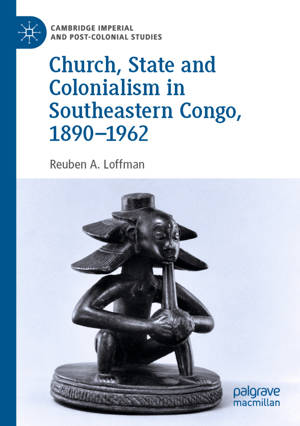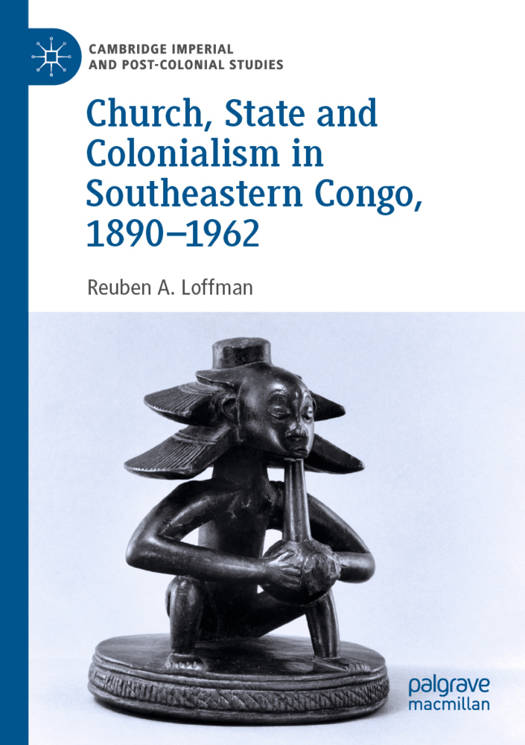
Door een staking bij bpost kan je online bestelling op dit moment iets langer onderweg zijn dan voorzien. Dringend iets nodig? Onze winkels ontvangen jou met open armen!
- Afhalen na 1 uur in een winkel met voorraad
- Gratis thuislevering in België vanaf € 30
- Ruim aanbod met 7 miljoen producten
Door een staking bij bpost kan je online bestelling op dit moment iets langer onderweg zijn dan voorzien. Dringend iets nodig? Onze winkels ontvangen jou met open armen!
- Afhalen na 1 uur in een winkel met voorraad
- Gratis thuislevering in België vanaf € 30
- Ruim aanbod met 7 miljoen producten
Zoeken
Church, State and Colonialism in Southeastern Congo, 1890-1962
Reuben A Loffman
€ 94,95
+ 189 punten
Uitvoering
Omschrijving
This book examines the relationship between Catholic missionaries and the colonial administration in southeastern Belgian Congo. It challenges the perception that the Church and the state worked seamlessly together. Instead, using the territory of Kongolo as a case study, the book reconfigures their relationship as one of competitive co-dependency. Based on extensive archival research and oral histories, the book argues that both institutions retained distinct agendas that, while coinciding during certain periods, clashed on many occasions. The study begins by outlining the pre-colonial history of southeastern Congo. The second chapter examines how the Church began its encounters with the peoples in Kongolo and the Tanganyika province of the Democratic Republic of the Congo. Subsequent chapters highlight how missionaries exerted significant influence over the colonial construction of chieftainship and the politics of Congolese decolonization. The book ends in 1962, with the massacre ofa number of Holy Ghost Fathers in an event that signaled the beginning of a more Africanized Church in Kongolo.
'The author gratefully acknowledges support from the Economic and Social Research Council in the completion of this project.'
'The author gratefully acknowledges support from the Economic and Social Research Council in the completion of this project.'
Specificaties
Betrokkenen
- Auteur(s):
- Uitgeverij:
Inhoud
- Aantal bladzijden:
- 281
- Taal:
- Engels
- Reeks:
Eigenschappen
- Productcode (EAN):
- 9783030173821
- Verschijningsdatum:
- 14/08/2020
- Uitvoering:
- Paperback
- Formaat:
- Trade paperback (VS)
- Afmetingen:
- 148 mm x 210 mm
- Gewicht:
- 403 g

Alleen bij Standaard Boekhandel
+ 189 punten op je klantenkaart van Standaard Boekhandel
Beoordelingen
We publiceren alleen reviews die voldoen aan de voorwaarden voor reviews. Bekijk onze voorwaarden voor reviews.











